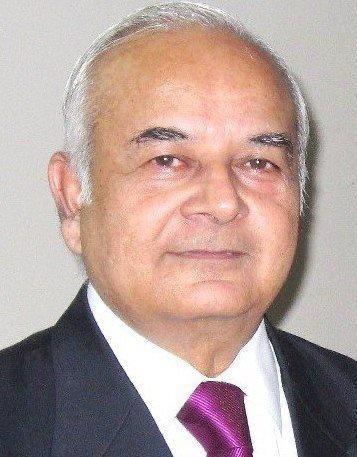How to Break the Elite Capture of Pakistan
Introduction:
Pakistan is a nation blessed with immense potential, yet it remains trapped in a vicious cycle of political instability, economic disparity, and institutional decay. At the heart of this crisis lies elite capture—a system where a small group of powerful families, cartels of all types, and economic oligarchs control the country’s resources, policies, and institutions for their own benefit. This grip has remained unchallenged for decades, muting public outrage through a combination of apathy, rampant illiteracy, and economic dependency, notwithstanding the fact that the Article 38 of the Constitution of Pakistan unequivocally stipulates the provision stipulated under Article 38 of the Constitution of Pakistan, which outlines the responsibilities of the state towards the welfare of its citizens. Specifically, Article 38 focuses on the state’s obligation to provide for the social and economic well-being of the people.
Here is the relevant text from Article 38 of the Constitution of Pakistan:
Article 38: Promotion of social and economic well-being of the people
The State shall:
- (a) provide for the basic necessities of life, such as food, clothing, housing, education, and medical relief, for all citizens, irrespective of sex, caste, creed, or race;
- (b) provide for the equitable distribution of wealth and resources of the community to eliminate poverty and hunger and to bring about economic and social justice;
- (c) ensure that the employment opportunities are available to every citizen, and that the income from productive activities shall be distributed fairly.
This article imposes a duty on the state to ensure the provision of the basic necessities of life to all citizens, including the needy and jobless, as part of its role in securing the welfare of the people.
In view of the foregoing, the fundamental question is: Can Pakistan break free from this elite stranglehold, and if so, how? While the task is daunting, history shows that no system of oppression is permanent. The challenge is not just about finding the right leader, but about creating the conditions where real leadership can emerge and thrive. This article presents a structured roadmap to dismantling elite capture and paving the way for a new, people-centric Pakistan.
Understanding the Elite Capture
To break a system, one must first understand how it sustains itself. The elite maintain control through:
1. Political Dynasties – Mostly political elite treat political power as inheritance rather than public service.
2. Cartels Nexus – Various cartels control key decision-making processes, ensuring that only a select few can govern.
3. Religious Manipulation – The elite have been coopting supporting religious support to preach obedience rather than resistance, ensuring people accept injustice as fate.
4. Economic Monopoly – A handful of industrialists, real estate tycoons and landowners dominate Pakistan’s economy, keeping the majority dependent and powerless.
5. Media Control & Misinformation – The elite own or influence mainstream media, shaping public opinion to maintain their dominance.
6. Public Apathy – Generations of broken promises have conditioned people to believe that change is impossible, making them passive spectators rather than active participants in governance.
Step 1: Breaking Public Apathy – Awakening the Masses
Apathy is the biggest victory of the elite. It ensures that the people—who have the power to overthrow any system—remain indifferent or hopeless. To counter this, Pakistan needs:
1. A National Awakening Campaign
– Reignite a sense of national purpose – Pakistanis must believe in their collective power to reclaim their country.
– Educate the masses — about how the system works and how it can be changed. Grassroots awareness programs, independent media, and digital activism can counter elite narratives.
– Expose elite tactics — show people how they are deliberately kept poor, dependent, and divided to prevent rebellion.
2. Economic & Political Empowerment of the Middle Class
– The middle class is the biggest threat to the elite, yet they remain politically disengaged. Encouraging entrepreneurship, freelancing, and independent economic activity will reduce reliance on elite-controlled jobs and resources.
– Political education for the working class and students is essential to create informed voters rather than blind followers.
Step 2: Reclaiming Religious Narratives
Religion is one of the most powerful tools used by the elite to maintain control. Islam, which historically stood for justice and accountability, has been distorted into a tool for submission. To counter this:
– Challenge the religious status quo – Promote scholars who emphasize justice, ethical leadership, and resistance against corruption.
– Expose the hypocrisy of elite-backed religious figures – Many have been used to justify oppression rather than uphold Islamic principles of justice and fairness.
– Promote independent religious institutions that focus on people’s welfare rather than serving political masters.
Step 3: Establishing Parallel Leadership Structures
The current political structure is designed to prevent change. Instead of relying on existing parties, Pakistan needs:
1. A New Political Movement
– A party or movement that rejects dynastic politics and is led by intellectuals, professionals, and the working class.
– Merit-based leadership selection instead of loyalty-based appointments.
– A focus on policy-driven governance rather than personality cults.
2. Grassroots Mobilization & Local Governance
– Empowering local governments ensures that people’s problems are solved at the community level, reducing elite influence at the top.
– Community-driven activism can create an alternative power base outside the corrupt political elite.
Step 4: Economic Reforms to Break Elite Monopoly
The elite’s control over wealth is their biggest weapon. To weaken their grip:
– Tax Reforms – End tax exemptions for feudal lords and industrial monopolies.
– Land Reforms – Redistribute excessive land holdings controlled by political families and bureaucrats.
– Encourage SMEs & Digital Economy – Reducing dependence on elite-controlled industries by supporting small businesses, digital startups, and freelancers.
Step 5: Structural & Electoral Overhaul
Even if good leaders emerge, the current system blocks their rise. Pakistan needs:
1. Electoral Reforms
– Proportional representation instead of the first-past-the-post system, allowing new players to enter politics.
– Strict qualifications for public office to prevent corrupt politicians from running.
– A cap on political dynasties – No family should be allowed to hold key offices for more than two consecutive generations.
2. A More Independent Judiciary & Accountability System
– Strengthening judicial independence so courts are not influenced by the elite.
– A transparent anti-corruption body free from political and any other interference.
Step 6: Preparing for the Spark – Turning Crisis into Change
History proves that elite systems collapse when a crisis becomes too big to manage. The key is ensuring that when the moment comes, it leads to real change rather than another elite reshuffle.
How to prepare?
– Shape the narrative before the crisis hits – When the system begins to collapse, people must already have a clear alternative to rally behind.
– Have a leadership structure in place – The movement should not be leaderless when the elite lose control.
– Ensure a structured transition – Instead of chaotic uprisings, a clear roadmap for governance and reform must be ready.
Conclusion: The Elite’s Reign is Not Inevitable
Pakistan’s elite capture is not invincible. It survives because of public apathy, economic dependence, and religious manipulation. But history shows that no system can withstand a truly awakened people. The moment Pakistanis stop seeing corrupt leadership as their fate and start believing in their own power, the elite’s grip will weaken.
The challenge is not just waiting for a spark, but preparing to seize the moment when it arrives. Because when the inferno starts, the future will belong to those who are ready to build a new Pakistan from the ashes of the old.
The real question is: Will Pakistan be ready?

Syed Nayyar Uddin Ahmad
Lahore.
+92 321 9402157
27 March 2025
The writer is a senior corporate leader and strategic analyst. His thought-provoking visionary insights have reshaped global discourse, capturing the attention of world leaders. His writings have not only resonated with heads of state and governments but have also influenced the foreign policies of the United States and other major powers.

